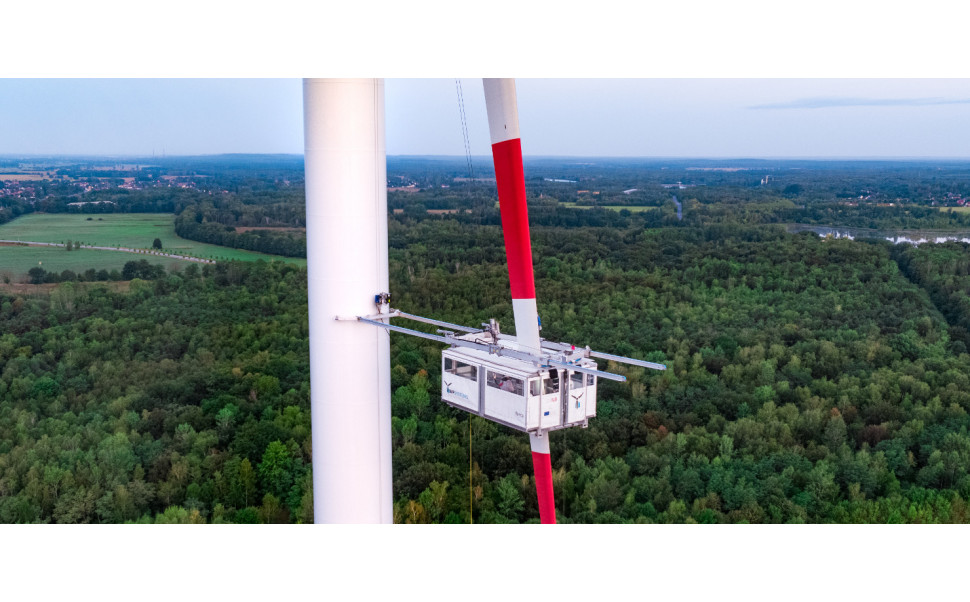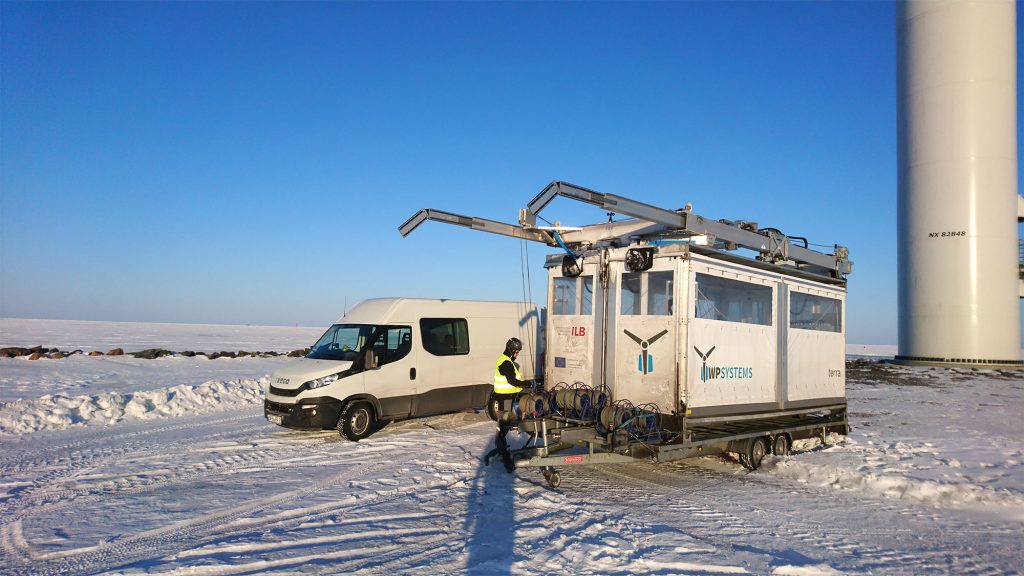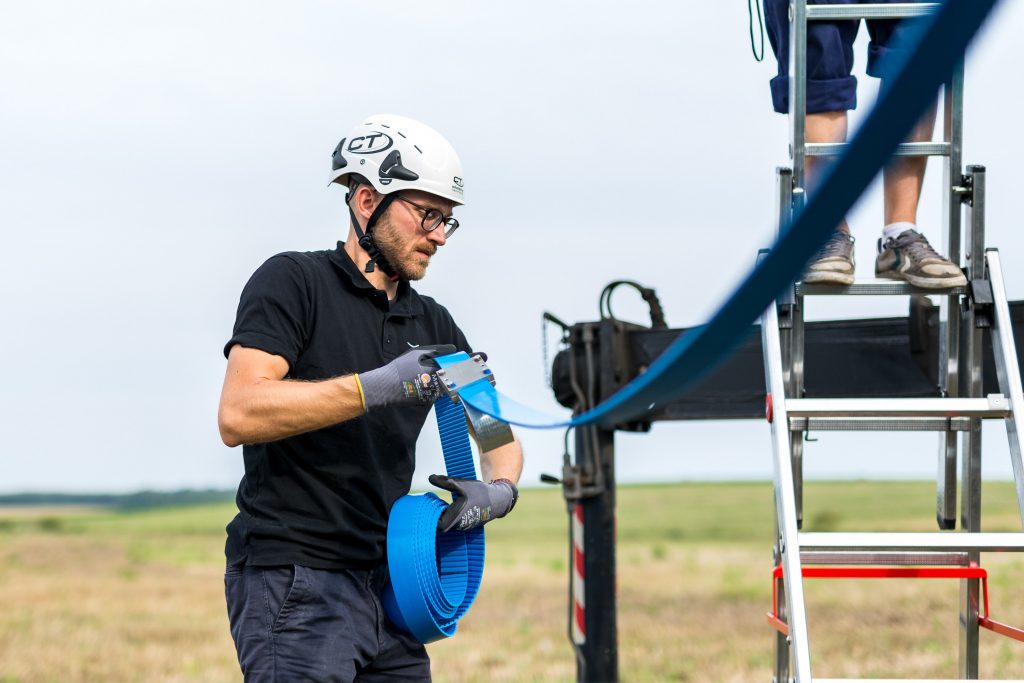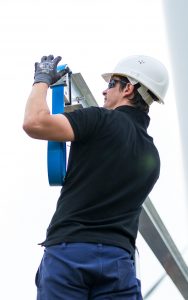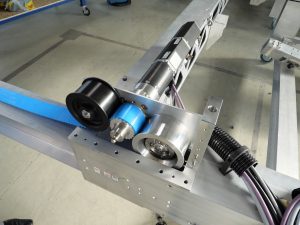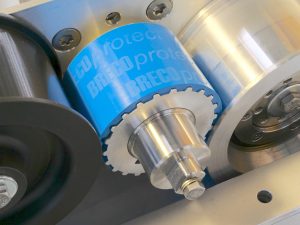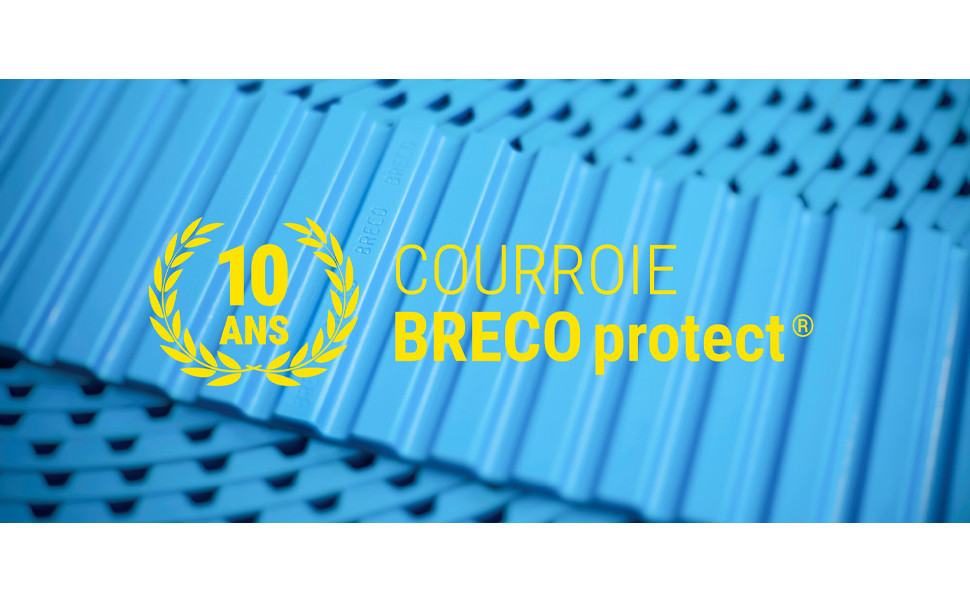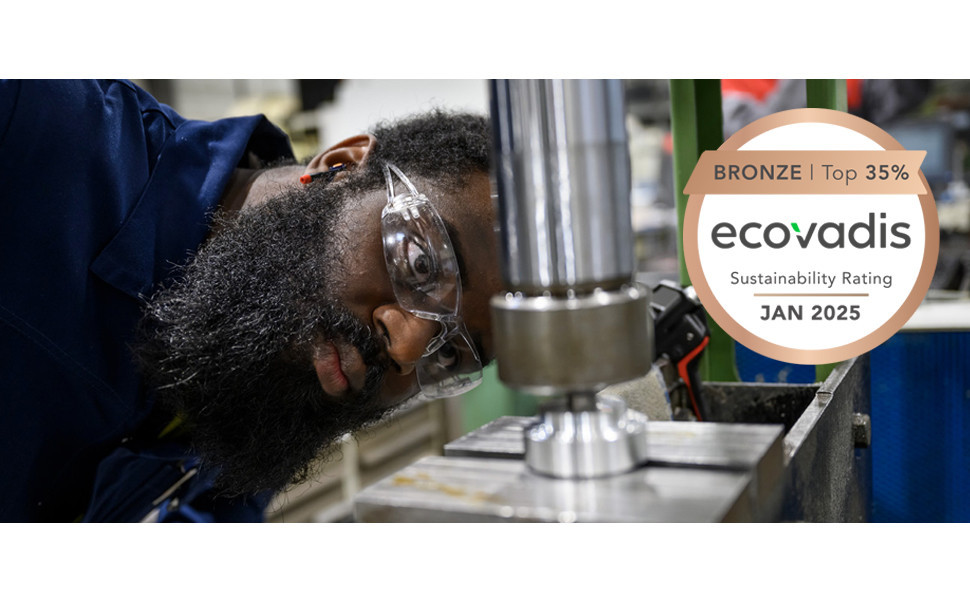Concept for the system terra 1.1
Holger Müller, an expert with years of experience in the field of wind power and director of WP Systems explains the idea of the mobile service platform terra 1.1 like this:
“Our approach was to develop a complete system, which would allow year-round rotor blade repairs. That requires not just one but several innovations:
• To provide a dry environment, the service platform must form a water-tight enclosure around the repair area. Moreover, the mechanism must be adaptable to various contours and cross-sections.
• A solution for applying resins at low temperatures must be found.
• The service platform must be transportable with conventional tandem axle trailers. This means that the weight of the trailer and platform is limited to 3.5 tonnes.”
With this complicated goal in mind, an interdisciplinary team of machine engineers and experts in materials and lightweight construction as well as simulation specialists founded WP Systems in 2015.
Structural solution for the service platform terra 1.1
Within only a few years, the new team fulfilled all requirements with the terra 1.1 system, including the extremely stringent ones for a certification that includes work at night. The new service platform terra 1.1 is really a mobile workshop. It consists of a lightweight aluminium structure, which can be turned into a wind-proof work chamber using tarpaulins and doors and is equipped with everything that is necessary such as power, light, tools and repair materials. To close the gap between the rotor blade and the floor or ceiling in a flexible manner, adjustable covers were developed in Ruhland, which are adapted to the aerodynamic contours of the rotor blades. They can be positioned at a distance of only a few centimetres from any rotor blade. A rubber sheet with suction cups seals the remaining gap between the covers and the rotor blades to make it water-tight. This makes it possible to perform repairs even when it is raining. To allow resin to be applied on days with temperatures below 12 °C, the developers at WP Systems use infra-red radiators to heat up the repair area. Within only a few minutes, this method creates temperatures of over 30 °C, even in low ambient temperatures. Moreover,the polyester resin and hardener are stored in a heated transport box to ensure that the temperature chain is never interrupted. With this type of preparation, repair work of any duration is now possible at temperatures as low as 0°C and even, for brief periods, at temperatures as low as -10 °C.

